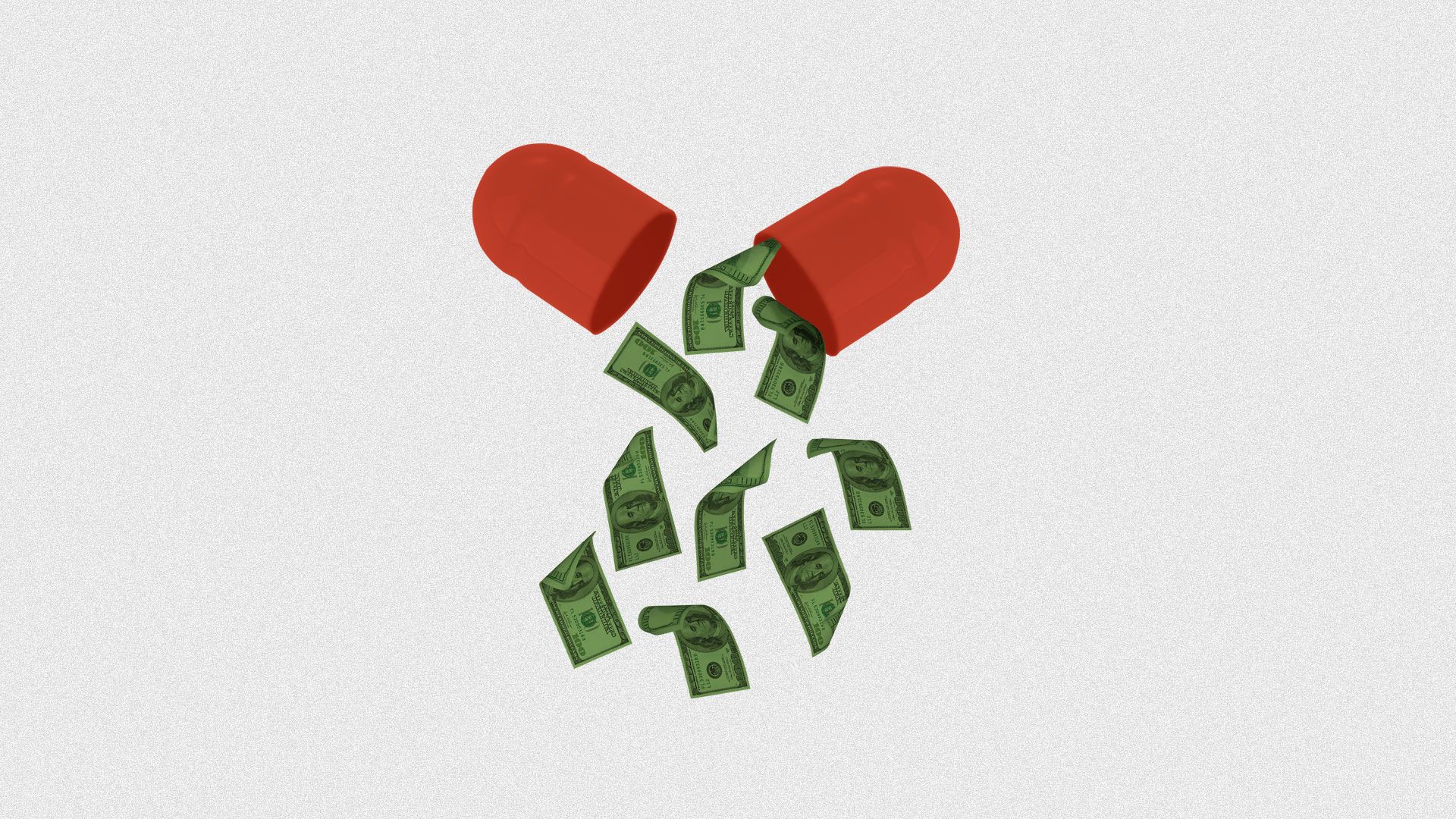New drugs are launching with ever-higher prices
Add Axios as your preferred source to
see more of our stories on Google.

Illustration: Eniola Odetunde/Axios
The average launch prices for new brand-name drugs have skyrocketed over the past decade, according to an analysis from drug research firm 46brooklyn.
Why it matters: The U.S. prescription drug market increasingly has thrived on high initial price tags and subsequent increases. That has resulted in higher premiums and out-of-pocket costs for new drugs, as well as more expensive generics.
Between the lines: Pharmaceutical companies are not raising prices of existing drugs as frequently as they used to, due in part to political heat. However, more new drugs are coming out with 6- and 7-figure list prices — most notably drugs like Zolgensma and Luxturna.
- Higher starting prices for brand-name drugs are costly on their own, but they also beget higher starting prices for their generics.
By the numbers: Using data from Elsevier's Gold Standard Drug Database and the federal government, analysts at 46brooklyn organized the launch prices of both brand and generic drugs for each year they came out, going back to 2006.
- The median monthly price of a new brand-name drug has increased 381% since 2006 (from $150 to $722).
- The median monthly price of a new generic drug has increased 712% since 2006 (about $100 to almost $800).
- These are list prices, not net prices, and therefore do not reflect any rebates given by manufacturers to middlemen. But these prices still affect patients' out-of-pocket costs, and some list prices could be close to actual net prices paid depending on the contract and marketplace.
One step further: Almost 80% of all generic drugs studied had no decrease in their average wholesale price in the past 5 years.
The bottom line: There is systemic failure in the pharmaceutical market. Rising starting points for drugs benefit every entity, except patients.
- Brand-name drugmakers reap the first rewards and usually don't provide a lot of, if any, rebates for new drugs with no competitors.
- Generics manufacturers often don't lower prices by much after a drug patent elapses.
- Pharmacy benefit managers pocket the difference between what they charge insurance programs for overpriced generics and what they pay pharmacists.
- Wholesalers and pharmacists collect their smaller cuts along the way.
Go deeper: The drug pricing maze
Editor's note: This post has been updated to note the analysis looks at list prices, not net prices.
